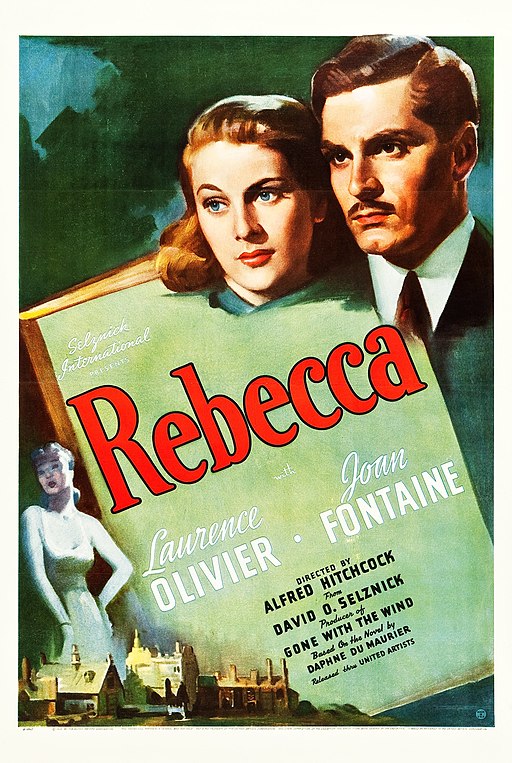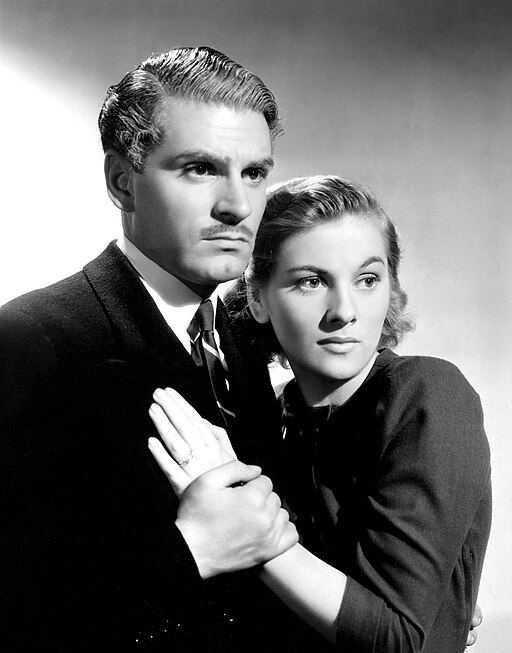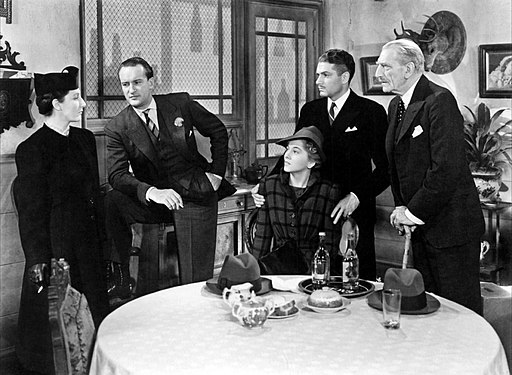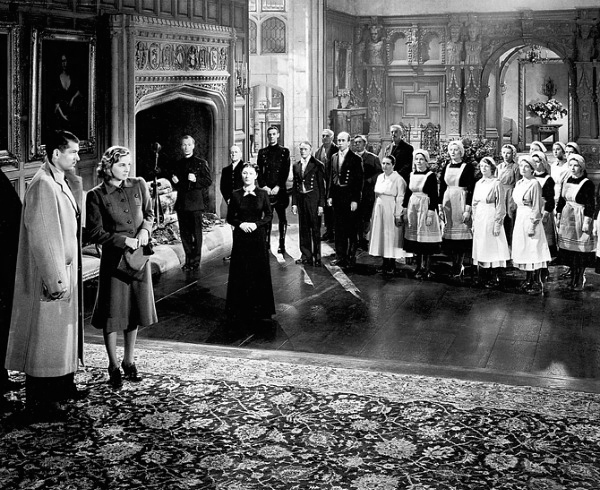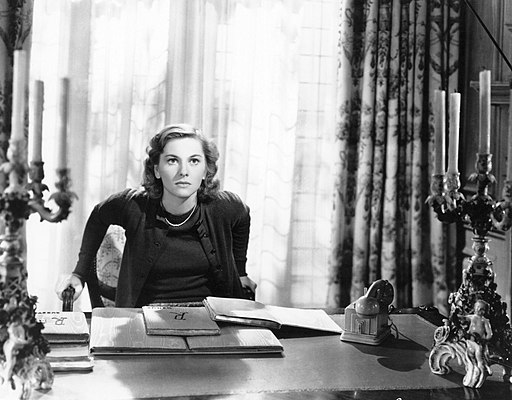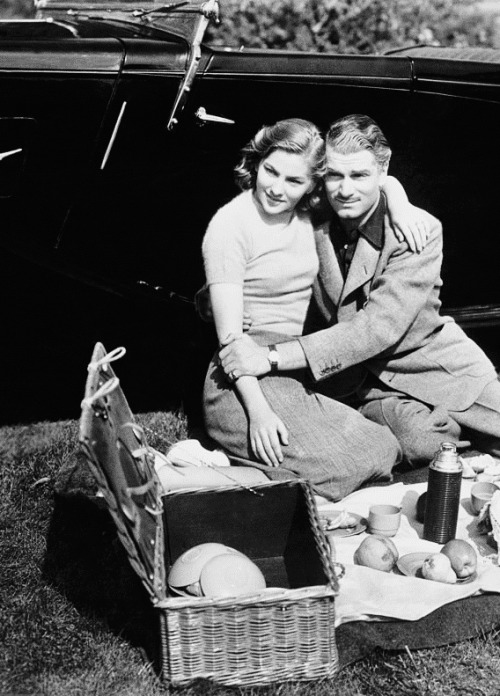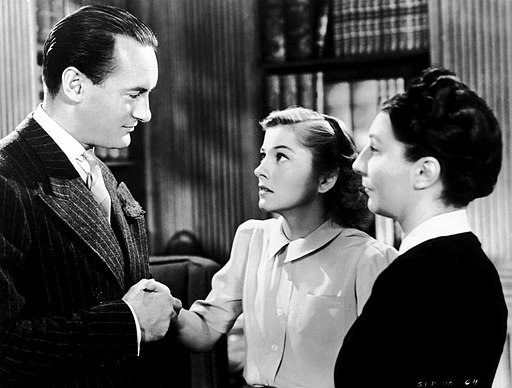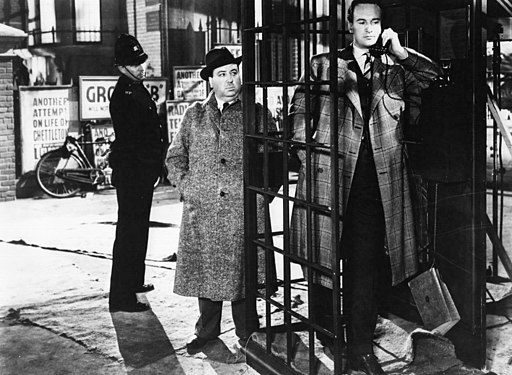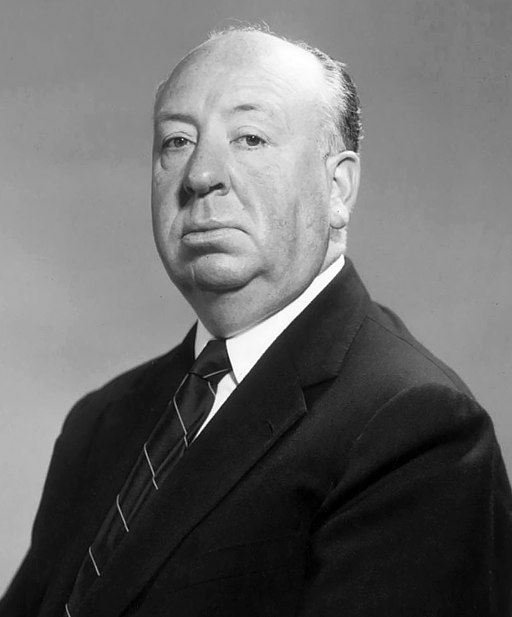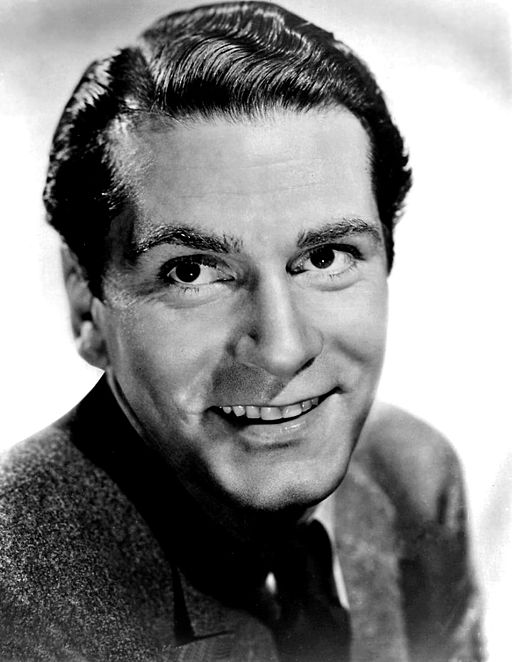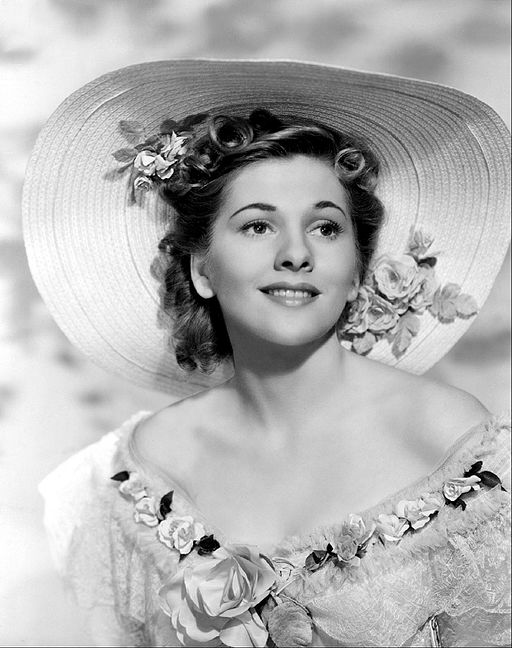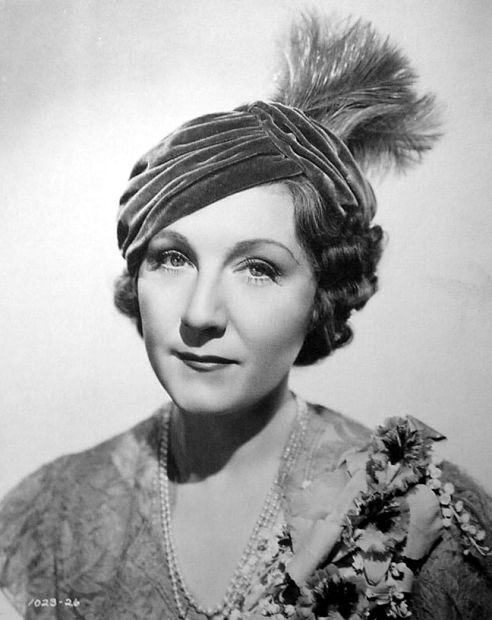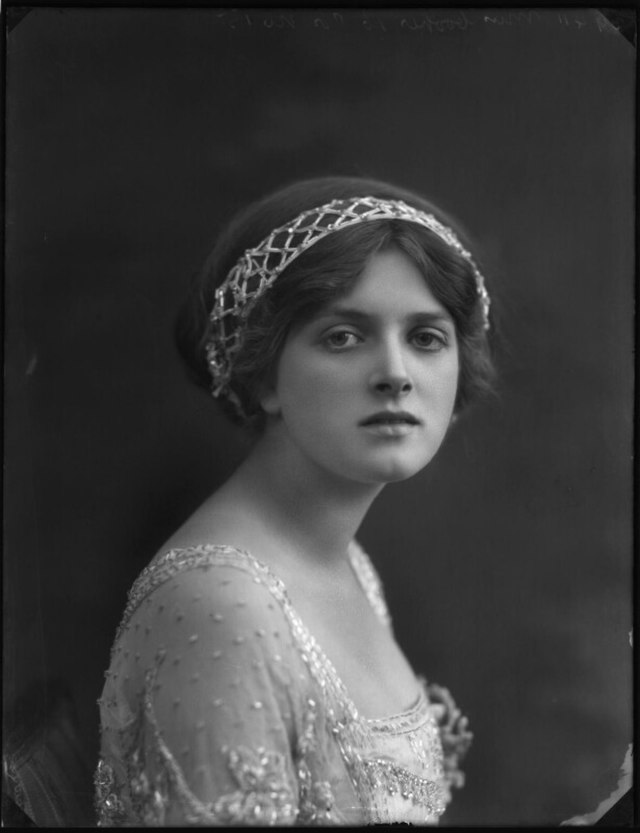Rebecca - 1940
back| Released by | United Artists |
| Director | Alfred Hitchcock |
| Producer | David O. Selznick |
| Script | Screenplay by Robert E. Sherwood and Joan Harrison, based on the novel by Daphne du Maurier |
| Cinematography | George Barnes |
| Music by | Franz Waxman |
| Running time | 130 minutes |
| Film budget | $ 1,3 million |
| Box office sales | $ 6 million |
| Main cast | Joan Fontaine - Judith Anderson - Laurence Olivier |
Rebecca
Alfred Hitchcock’s definitive Breakthrough in Hollywood
"Rebecca" was notable for being Alfred Hitchcock's first American project, and it won the Academy Award for Best Picture in 1941. The film is a classic example of Hitchcock's suspenseful style and remains a significant work in the history of cinema.
Related
Rebecca – 1940
Summary:
"Rebecca" opens with a young and naïve companion (played by Joan Fontaine) meeting the wealthy and brooding widower Maxim de Winter (Laurence Olivier) in Monte Carlo. They quickly marry, and she moves into his large country estate, Manderley. There, the new Mrs. de Winter finds herself overshadowed by the omnipresent influence of Maxim's deceased first wife, Rebecca, whose memory is kept alive by the sinister housekeeper, Mrs. Danvers (Judith Anderson).
The new Mrs. de Winter struggles with her insecurities and feels constantly compared to the seemingly perfect Rebecca. The staff and Maxim himself often reminisce about Rebecca's grace and beauty, deepening her feelings of inadequacy. The situation escalates when Mrs. Danvers manipulates her into wearing a dress that Rebecca once wore, embarrassing her in front of guests and Maxim.
The plot takes a dark turn when a sunken boat with Rebecca's body is discovered. Maxim confesses to the new Mrs. de Winter that his marriage to Rebecca was a sham, filled with misery. He reveals that he had confronted Rebecca about her infidelities, leading to her accidental death. He then disposed of her body by sinking her boat.
In the climax, the truth about Rebecca's death is unraveled. It's revealed that she was terminally ill and had goaded Maxim into killing her to escape a slow death. The film ends with Manderley in flames, set by a vengeful Mrs. Danvers, and the de Winters escaping, finally free from Rebecca's haunting presence.
Analysis:
"Rebecca" is a masterful blend of gothic romance and psychological thriller, a hallmark of Hitchcock's style. The film explores themes of memory, identity, and the psychological grip of the past. Rebecca, though never seen on screen, is a pervasive character — her presence is felt throughout the movie, affecting every character's actions and emotions.
Hitchcock uses visual storytelling to heighten the suspense and mystery. The opulent but oppressive Manderley, combined with the moody cinematography, creates a sense of claustrophobia and unease. The use of shadows and light contrasts the characters' emotional states and the hidden secrets lurking within the walls of Manderley.
The performances are key to the film's success. Joan Fontaine effectively portrays the vulnerability and growth of Mrs. de Winter, while Judith Anderson's portrayal of Mrs. Danvers is chillingly malevolent, embodying the haunting influence of Rebecca. Laurence Olivier, as Maxim, expertly balances charm and torment, portraying a man haunted by his past.
"Rebecca" remains a significant work in Hitchcock’s oeuvre and in the annals of cinema for its atmospheric tension, psychological depth, and its exploration of the themes of memory and identity. The film's narrative and stylistic elements work cohesively to create a timeless thriller that continues to resonate with audiences.
The Making of "Rebecca":
Full Cast of “Rebecca”:
- Laurence Olivier as Maxim de Winter
- Joan Fontaine as the second Mrs. de Winter
- Judith Anderson as Mrs. Danvers
- George Sanders as Jack Favell
- Nigel Bruce as Major Giles Lacy
- Reginald Denny as Frank Crawley
- C. Aubrey Smith as Colonel Julyan
- Gladys Cooper as Beatrice Lacy
- Florence Bates as Mrs. Van Hopper
- Melville Cooper as Coroner
- Leo G. Carroll as Dr. Baker
- Leonard Carey as Ben
- Lumsden Hare as Tabbs
- Edward Fielding as Frith
- Philip Winter as Robert
- Forrester Harvey as Chalcroft
Analysis of Hitchcock’s Directing Style:
Visual Storytelling and Cinematic Techniques:
Hitchcock was a pioneer in the use of innovative camera techniques and visual storytelling. In "Rebecca," he skillfully uses lighting, composition, and camera angles to create a sense of suspense and foreboding. His use of shadows and light contrasts not only enhances the mood but also reflects the psychological states of the characters. The grandeur and eeriness of Manderley, the de Winter estate, are captured through meticulous set design and cinematography, making the house almost a character in itself.
Psychological Depth:
Hitchcock's films often delve into complex psychological themes. In "Rebecca," he explores the impact of the past on the present, the nature of identity, and the psychological manipulation exerted by the character of Mrs. Danvers. The unseen character of Rebecca is a prime example of Hitchcock's ability to create a looming presence that deeply affects every character, driving the narrative without ever appearing on screen.
Suspense and Pacing:
Hitchcock was a master at building suspense, often by giving the audience more information than the characters have, a technique known as dramatic irony. In "Rebecca," the tension slowly builds as secrets about Rebecca's life and death are gradually revealed. Hitchcock's pacing is deliberate, allowing the suspense to grow while keeping the audience engaged and guessing.
Characterization and Performance:
Hitchcock was known for his meticulous attention to performance and character development. In "Rebecca," he draws out nuanced performances from his actors, particularly Joan Fontaine, Laurence Olivier, and Judith Anderson. Their portrayals of vulnerability, torment, and malevolence are central to the film's impact.
Symbolism and Themes:
Hitchcock often used symbolism to deepen the thematic content of his films. In "Rebecca," the recurring motif of the sea, the boat, and the estate itself symbolizes various themes such as the inescapability of the past and the undercurrents of mystery surrounding Rebecca's life and death.
Innovation and Influence:
Hitchcock was not afraid to push boundaries and experiment with new ideas in filmmaking. His innovative techniques in storytelling, editing, and visual composition have influenced generations of filmmakers. "Rebecca," his first American film, set a precedent for his later works in terms of style and thematic exploration.
Analysis of the Performance of Joan Fontaine:
Joan Fontaine's performance in Alfred Hitchcock's "Rebecca" (1940) is a study in subtlety, vulnerability, and emotional depth, marking it as one of the most nuanced and memorable roles in her career. Her portrayal of the second Mrs. de Winter is characterized by several key aspects:
Nuanced Portrayal of Vulnerability:
Fontaine masterfully captures the essence of a young, naïve woman who is abruptly thrust into a world of wealth and complex social dynamics. Her portrayal is imbued with a palpable sense of insecurity and self-doubt, particularly in the shadow of the omnipresent, deceased Rebecca. This vulnerability is depicted through her body language, facial expressions, and tone of voice, which often convey more than the dialogue itself.
Evolution of Character:
One of the most striking aspects of Fontaine's performance is the evolution of her character throughout the film. Initially, she embodies a timid and almost ethereal presence, constantly overwhelmed by the grandeur of Manderley and the legacy of Rebecca. As the story progresses, however, Fontaine skillfully reveals her character's growing strength and self-assurance. This gradual transformation is subtle yet distinct, showcasing Fontaine's range as an actress.
Chemistry with Co-stars:
Fontaine's interactions with her co-stars, particularly Laurence Olivier (Maxim de Winter) and Judith Anderson (Mrs. Danvers), are central to the film's emotional dynamics. Her chemistry with Olivier oscillates between tender affection and tense misunderstanding, reflecting the complexities of their relationship. Her scenes with Anderson are charged with a different kind of tension, as Fontaine’s character confronts the intimidating and manipulative housekeeper. These interactions highlight Fontaine's ability to adapt her performance to different on-screen relationships.
Expressive Use of Eyes and Voice:
Fontaine's use of her eyes and voice significantly contributes to the emotional resonance of her performance. Her eyes often convey a sense of fear, longing, or confusion, serving as a window into her character's psyche. Her voice, initially soft and uncertain, gradually becomes more assertive, mirroring her character's inner journey.
Hitchcock's Direction:
Working under Hitchcock's direction, Fontaine was able to delve deeply into the psychological aspects of her character. Hitchcock is known for his demanding direction style, especially with his leading ladies, and his guidance likely played a significant role in shaping Fontaine's performance. Her ability to convey complex emotional states with subtlety and depth is a testament to her talent and Hitchcock's directorial skill.
Iconic Performance of Judith Anderson as Mrs. Danvers:
Judith Anderson's performance as Mrs. Danvers in Alfred Hitchcock's "Rebecca" is a standout example of character acting, offering a chilling and unforgettable portrayal of the malevolent housekeeper. Her performance is marked by several key aspects that contribute to its lasting impact:
Intimidating Presence:
Anderson's portrayal of Mrs. Danvers is characterized by an intimidating, almost spectral presence. She embodies the character with a stoic and rigid demeanor, using her posture and movements to convey a sense of control and austerity. This physicality, combined with her often expressionless face, creates an aura of menace and unspoken threat that pervades her scenes.
Subtlety and Restraint:
One of the most remarkable aspects of Anderson's performance is her use of subtlety and restraint. She employs minimal facial expressions and a controlled, measured tone of voice, which makes her moments of emotional outburst or manipulation even more impactful. This understated approach heightens the sense of mystery and unease surrounding her character.
Psychological Complexity:
Anderson adds depth to Mrs. Danvers by infusing the character with complex psychological layers. Her devotion to the late Rebecca is portrayed not just as loyalty, but as an obsessive and almost romantic fixation. This complexity is conveyed through her interactions with the second Mrs. de Winter, where she oscillates between cold hostility and disturbing intimacy.
Commanding Screen Presence:
Despite being a supporting character, Anderson commands the screen with her presence. She holds the viewer's attention in every scene she appears in, whether she's subtly undermining the second Mrs. de Winter or revealing her twisted allegiance to Rebecca. Her ability to dominate a scene without overt actions speaks volumes about her skill as an actress.
Interaction with Joan Fontaine:
Anderson's scenes with Joan Fontaine (the second Mrs. de Winter) are particularly noteworthy. The dynamic between the two characters is charged with tension, and Anderson skillfully portrays Mrs. Danvers’ manipulative and menacing nature. Her interactions range from thinly veiled hostility to moments of eerie closeness, creating a complex and unsettling relationship that drives much of the film's psychological tension.
Legacy of the Role:
Anderson's portrayal of Mrs. Danvers has become iconic in the world of cinema, setting a benchmark for on-screen villainy. Her performance has influenced numerous portrayals of sinister characters in film and television, becoming a reference point for understated yet powerful antagonism.
In summary, Judith Anderson's performance in "Rebecca" is a masterful display of controlled malevolence, psychological depth, and commanding screen presence. Her portrayal of Mrs. Danvers is both chilling and nuanced, contributing significantly to the film's suspenseful atmosphere and leaving a lasting impression on audiences and filmmakers alike.
Notable Quotes from the Film:
Opening Line:
- "Last night I dreamt I went to Manderley again."
- Spoken by Joan Fontaine's character, this line sets the tone for the film's exploration of memory and the past.
Maxim de Winter:
- "You have no idea how much it means to me to have you here. It's like heaven for me."
- This line, spoken by Laurence Olivier's character, Maxim, reflects his complex emotions and the beginnings of his relationship with the second Mrs. de Winter.
Mrs. Danvers:
- "Do you think the dead come back and watch the living?"
- Judith Anderson's character, Mrs. Danvers, utters this eerie question, emphasizing the film's themes of the past haunting the present.
Maxim de Winter:
- "I hated her... I was carried away by her, enchanted by her, as everyone was. And when I was married, I was told I was the luckiest man in the world. She was so lovely, so accomplished, so amusing."
- In this confession, Maxim reveals his tumultuous feelings towards Rebecca, setting the stage for the film's climactic revelations.
Mrs. Danvers to the Second Mrs. de Winter:
- "You wouldn't think she'd been gone so long, would you? Sometimes, when I walk along the corridor, I fancy I hear her just behind me. That quick, light step. I couldn't mistake it anywhere. It's not only in this room, it's in all the rooms in the house. I can almost hear it now."
- This quote from Mrs. Danvers vividly illustrates the haunting presence of Rebecca throughout Manderley.
Maxim de Winter:
- "There's a fearful symmetry in all this, a fearful symmetry."
- Maxim reflects on the ironic and tragic twists of fate in his life, emphasizing the film's theme of inescapable destiny.
The Second Mrs. de Winter:
- "I'm Mrs. de Winter now!"
- This line, delivered by Joan Fontaine's character, marks a turning point in the film where she begins to assert herself and step out of Rebecca's shadow.
Awards and Recognition:
Academy Awards (1941):
- Won: Best Picture
- Producer David O. Selznick accepted the award.
- Won: Best Cinematography, Black and White
- Awarded to George Barnes.
- Nominated: Best Director
- Alfred Hitchcock.
- Nominated: Best Actor in a Leading Role
- Laurence Olivier for his role as Maxim de Winter.
- Nominated: Best Actress in a Leading Role
- Joan Fontaine for her role as the second Mrs. de Winter.
- Nominated: Best Actress in a Supporting Role
- Judith Anderson for her role as Mrs. Danvers.
- Nominated: Best Writing, Screenplay
- Robert E. Sherwood and Joan Harrison.
- Nominated: Best Art Direction, Black and White
- Art Direction: Lyle R. Wheeler; Interior Decoration: Thomas Little.
- Nominated: Best Film Editing
- Hal C. Kern and James E. Newcom.
- Nominated: Best Special Effects
- Jack Cosgrove (photographic); Arthur Johns (sound).
Other Awards and Honors:
- New York Film Critics Circle Awards (1940):
- Won: Best Director
- Alfred Hitchcock.
"Rebecca" was celebrated for its exceptional direction, cinematography, acting, and production values. The film's win for Best Picture marked a significant achievement for Alfred Hitchcock, solidifying his reputation in Hollywood. Despite Hitchcock's numerous critically acclaimed films, this remained the only one to win an Oscar for Best Picture.

